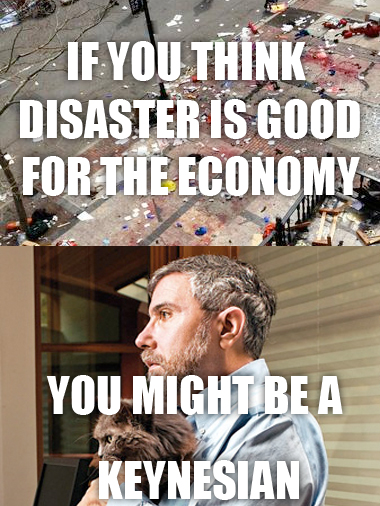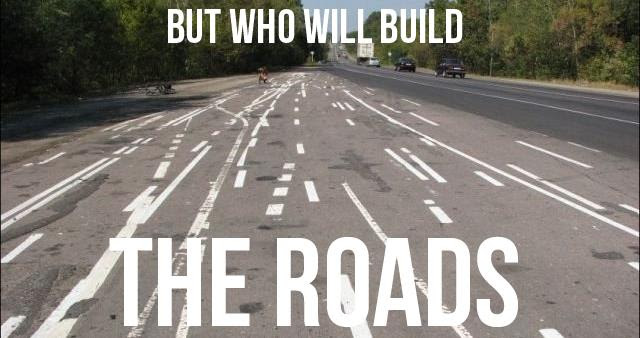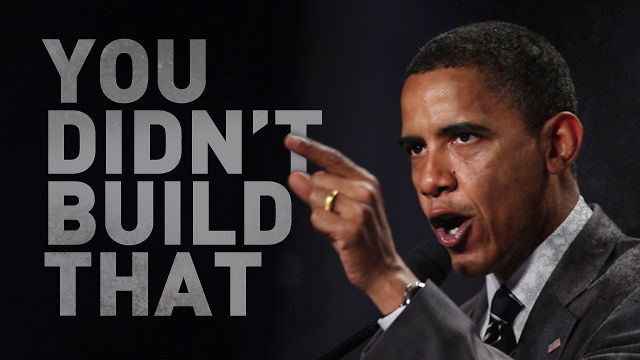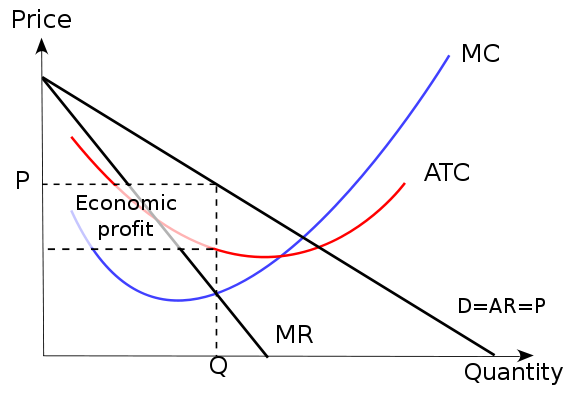| 1. |
 broken window fallacy
broken window fallacy
In Bastiat's tale, a man's son breaks a pane of glass, meaning the man will have to pay to replace it. The onlookers consider the situation and decide that the boy has actually done the community a service because his father will have to pay the glazier (window repair man) to replace the broken pane. The glazier will then presumably spend the extra money on something else, jump-starting the local economy.
|
|
| 2. |
 who will build the roads
who will build the roads
"But without government, who will build the roads?" government has been doing certain services since we can remember, so they’re the only ones capable of doing those services. But private enterprises have built roads, parks, and street lights throughout history. It doesn’t take a collection of people to steal money from one group of people or take out loans they can’t pay with the money they currently steal from people to produce vital services.
|
|
| 3. |
 you didn't build that
you didn't build that
Mr. Obama says that it’s government that laid the foundation for all these great things like roads and bridges and the Internet, but the government didn’t just do all those things on ITS own either. In fact, a government can’t do anything on its own since it relies on the blood, sweat, and tears of its subjects in order to do anything. Government, in its most basic form, is coercion. It is the authority to force people to do what they don’t want to do—a monopoly of violence. With regard to all these positive externalities that the president talks about, the government requires funding from people who pay involuntarily. The government couldn’t pay for teachers without stealing money through taxation of private enterprise first. The government couldn’t build roads without taking land.
|
|
| 4. |
 the fallacy of collective terms
the fallacy of collective terms
Examples of collective terms are “society,” “community,” “nation,” “class,” and “us.” The important thing to remember is that they are abstractions, figments of the imagination, not living, breathing, thinking, and acting entities. The fallacy involved here is presuming that a collective is, in fact, a living, breathing, thinking, and acting entity.
|
|
|
|
| 6. |
 money is wealth
money is wealth
The mercantilists of the 1600s raised this error to the pinnacle of national policy. Always bent upon heaping up hoards of gold and silver, they made war on their neighbors and looted their treasures. If England was richer than France, it was, according to the mercantilists, because England had more precious metals in its possession, which usually meant in the king’s coffers.
|
|
|
|
| 8. |
 free lunch
free lunch
Every “something for nothing” scheme and most “get rich quick” plans have some element of this fallacy in them. Let there be no mistake about this: if economics is involved,
|
|
| 9. |
 short run
short run
Some actions seem beneficial in the short run but produce disaster in the long run: drinking excessively, driving fast, spending blindly, and printing money, to name a few.
|
|
| 10. |
 economics by coercion
economics by coercion
Humans are social beings who progress if they cooperate with one another. Cooperation implies a climate of freedom for each individual human being to peacefully pursue his own self- interest without fear of reprisal. Put a human in a zoo or in a strait jacket and his creative ener gies dissipate.
|
|